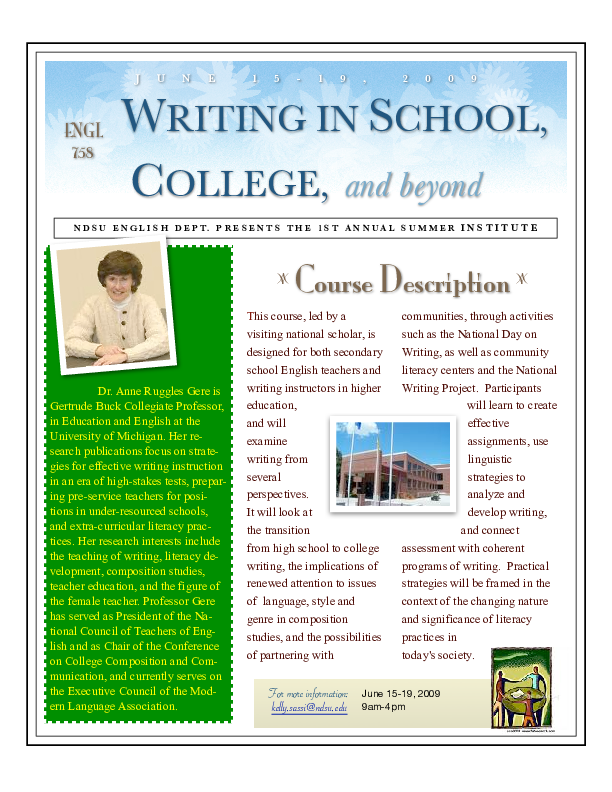Summer Scholars Program

Inaugurated in 2009, the Summer Scholars Programs celebrates research and supports graduate scholarship. Every year, the Department of English invites a nationally recognized scholar to teach an intensive, one-week summer course in his or her area of expertise. The class meets daily from 9am-5pm, with students completing some course reading prior to the beginning of class and then completing a major research and writing project after the completion of the course.
2023 Scholar: Dr. Alexandra Hidalgo
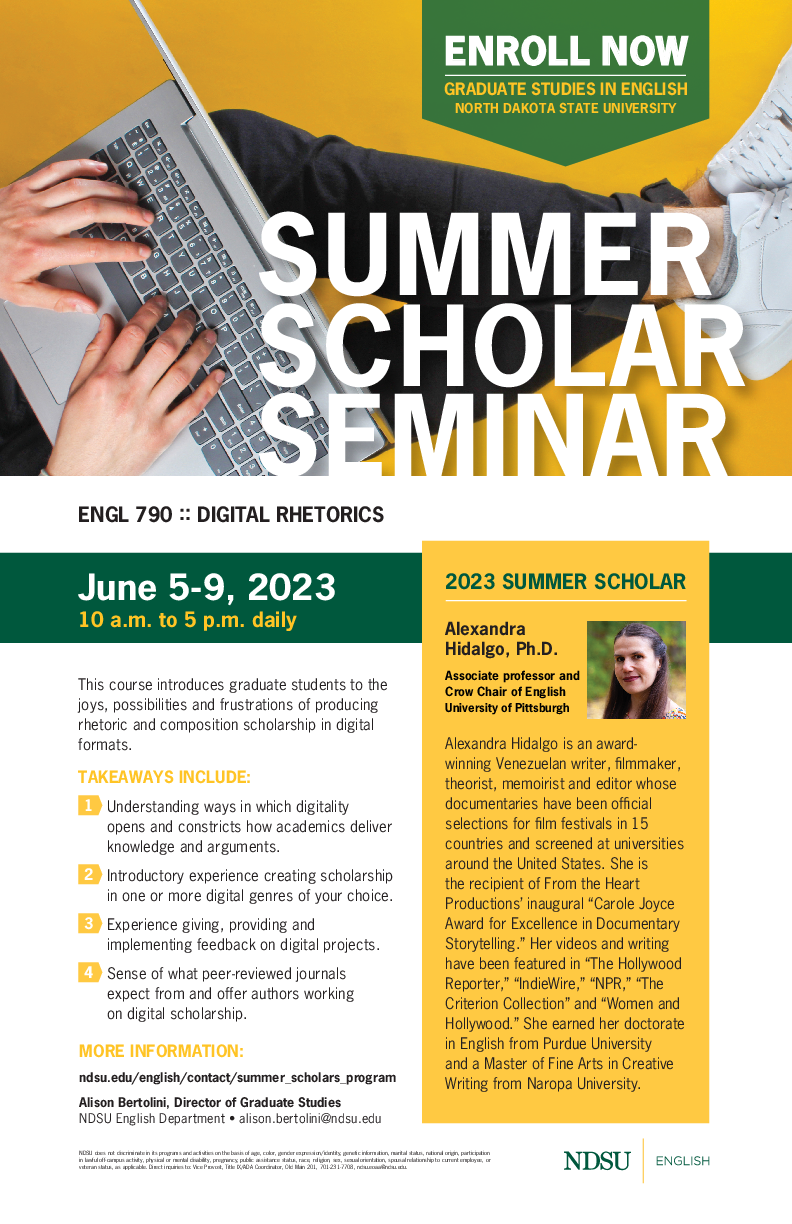
Course Title: English 790: Digital Rhetorics
Dates: June 5-9, 2023
Time: Daily, 10am-5pm
Instructor: Dr. Alexandra Hidalgo, University of Pittsburgh
This course introduces graduate students to the joys, possibilities, and frustrations of producing rhetoric and composition scholarship in digital formats. Takeaways include:
1. An understanding of various ways in which digitality opens and constricts how academics deliver knowledge and arguments.
2. Introductory experience with creating scholarship in one or more digital genres of your choice.
3. The experience of giving, providing, and implementing feedback on your own and classmates’ digital projects.
4. A sense of what peer-reviewed journals expect from and offer to authors working on digital scholarship.
Students will work on their own digital projects in a studio-style creative environment where we pool our knowledge and ideas to help projects emerge in ways that suit each person’s vision while meeting (and/or knowingly subverting) its target audience’s expectations. You do not need to have any experience with digital production to enroll in this class. We will develop those skills together.
Alexandra Hidalgo is an award-winning Venezuelan writer, filmmaker, theorist, memoirist, and editor whose documentaries have been official selections for film festivals in 15 countries and been screened at universities around the United States. She is the recipient of From the Heart Productions’ inaugural “Carole Joyce Award for Excellence in Documentary Storytelling.” Her videos and writing have been featured in The Hollywood Reporter, IndieWire, NPR, The Criterion Collection, and Women and Hollywood. She has a PhD in English from Purdue University and an MFA in Creative Writing from Naropa University and is associate professor and Crow Chair of English at the University of Pittsburgh. Her video book Cámara Retórica: A Feminist Filmmaking Methodology for Rhetoric and Composition received the 2018 Computers and Composition Distinguished Book Award. Her scholarship has been published in Kairos, Composition Studies, Enculturation, and Peitho, among others. Her video essay, “Motherhood on the Screen,” received the 2020 Kairos Best Webtext Award. She is co-founder and editor-in-chief of the digital publication agnès films: supporting women and feminist filmmakers and of the peer-reviewed journal constellations: a cultural rhetorics publishing space.
2022 Scholar: Dr. Anna Krakus
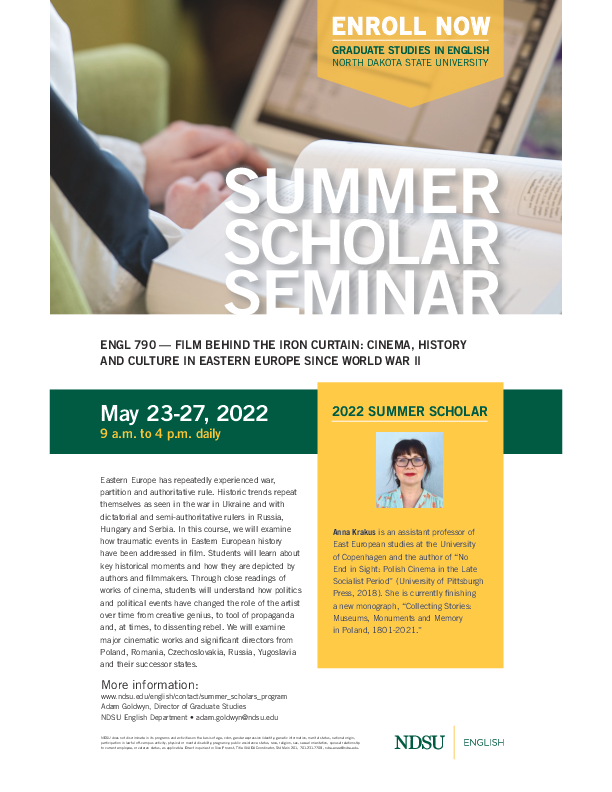
English 790
Film Behind the Iron Curtain: Cinema, History and Culture in Eastern Europe Since World War II
May 23 - 27, 2022
9:00 a.m. - 4:00 p.m. daily
Instructor: Dr. Anna Krakus, University of Copenhagen
Eastern Europe has repeatedly experienced war, partition and authoritative rule. Historic trends repeat themselves as seen in the war in Ukraine and with dictatorial and semi-authoritative rulers in Russia,Hungary and Serbia. In this course, we will examine how traumatic events in Eastern European history have been addressed in film. Students will learn about key historical moments and how they are depicted by authors and filmmakers. Through close readings of works of cinema, students will understand how politics and political events have changed the role of the artist over time from creative genius, to tool of propaganda and, at times, to dissenting rebel. We will examine major cinematic works and significant directors from Poland, Romania, Czechoslovakia, Russia, Yugoslavia and their successor states.
Anna Krakus is an assistant professor of East European studies at the University of Copenhagen and the author of “No End in Sight: Polish Cinema in the Late Socialist Period” (University of Pittsburgh Press, 2018). She is currently finishing a new monograph, “Collecting Stories: Museums, Monuments and Memory in Poland, 1801-2021.”
More information:
www.ndsu.edu/english/contact/summer_scholars_program
Adam Goldwyn, Director of Graduate Studies
NDSU English Department • adam.goldwyn@ndsu.edu
2021 Scholar: Dr. Pilar Melero, University of Wisconsin, Whitewater "Dissident Ontologies: Latina and Latin American Women’s Thought"
English 790 Dissident Ontologies: Latina and Latin American Women’s Thought (June 21-25)
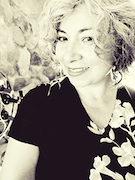 | Instructor Dr. Pilar Melero, University of Wisconsin, Whitewater Questions: Contact Dr. Adam Goldwyn, the Director of Graduate Studies adam.goldwyn@ndsu.edu |
Course Description: The role of the Pensador in Latin America has traditionally been assigned to male intellectuals. In fact, the term itself is in the masculine form, “Pensador”, as opposed to “Pensadora” or “Pensadorx/Pensadore”. As Argentinian Pensadora Victoria Ocampo states in her essay “Women and her Expression”, Latin American women have been denied a voice throughout the history of el Pensar (“Thought”, with a capital “T”), which was reserved for los Pensadores, the founders of the Latin American Nation/Identity (using Angel Rama’s idea of The Lettered City). Yet, Latin American and U.S. Latina women have not only claimed their own voices for centuries, since Sor Juana Inés de la Cruz (1600s, New Spain) to current day Chicana/Latina writers such as Gloria Anzaldúa. Dissident Ontologies: Latina and Latin American Women’s Thought seeks to trace the cartography of Latin American and Latina women’s thought as a path to being from Sor Juana through Gloria Anzaldúa, engaging texts by Victoria Ocampo, Rosario Castellanos, and others.
Pilar Melero is a professor of Spanish and Latin American/Latinx literature at the University of Wisconsin-Whitewater. She has published three books: Mythological Constructs of Mexican Femininity (New York, Palgrave/Macmillan, 2015), La casa de Esperanza: A History (NCLA/LA Casa de Esperanza, 2011), and From Mythic Rocks. Voces del Malpáis (LAGO Ediciones, Monterrey, Mexico, 2010). A fourth book, Discover Waukesha—a third-grade history book, is pending publication.
2019 Dr. Kristin Arola, Michigan State University. "Multimodality + Making: A Cultural Rhetorics Approach"
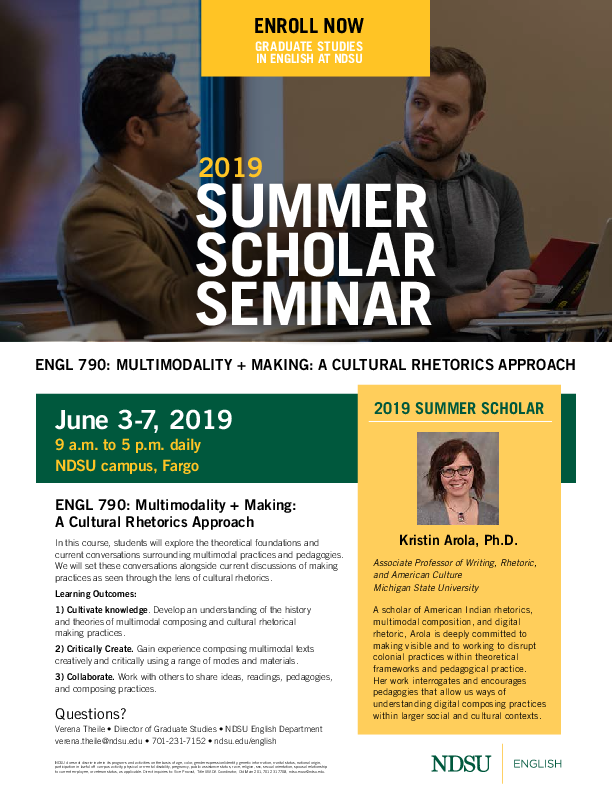
2018 Dr. Elisabet Arnó-Macià, Polytechnic University of Catalonia. "Designing and analyzing technology-enhanced materials and activities to develop language, writing and intercultural skills"
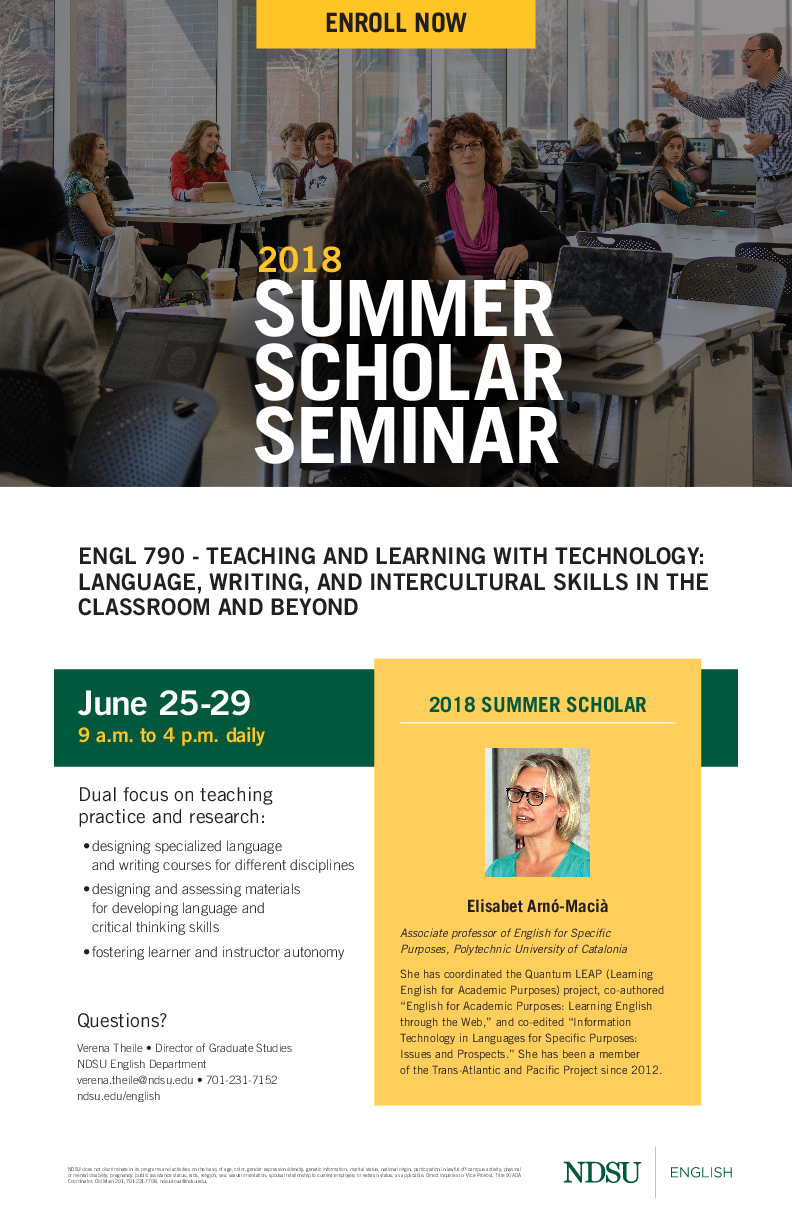
2017: Dr. Asao Inue, University of Washington Tacoma. "Classroom Writing Assessment and Antiracist Composition Pedagogy"
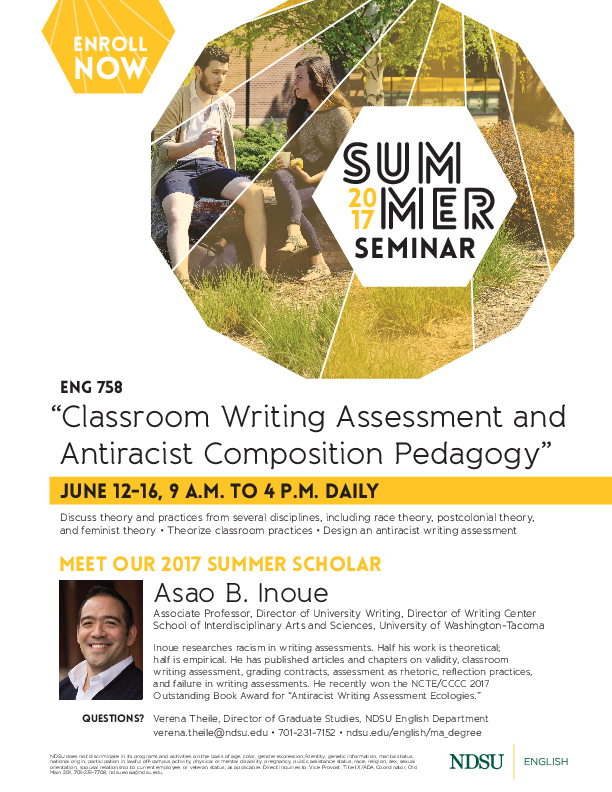
2016: Dr. Tatiani Rapatzikou, Aristotle University of Thessaloniki. "Rethinking Cityscapes"
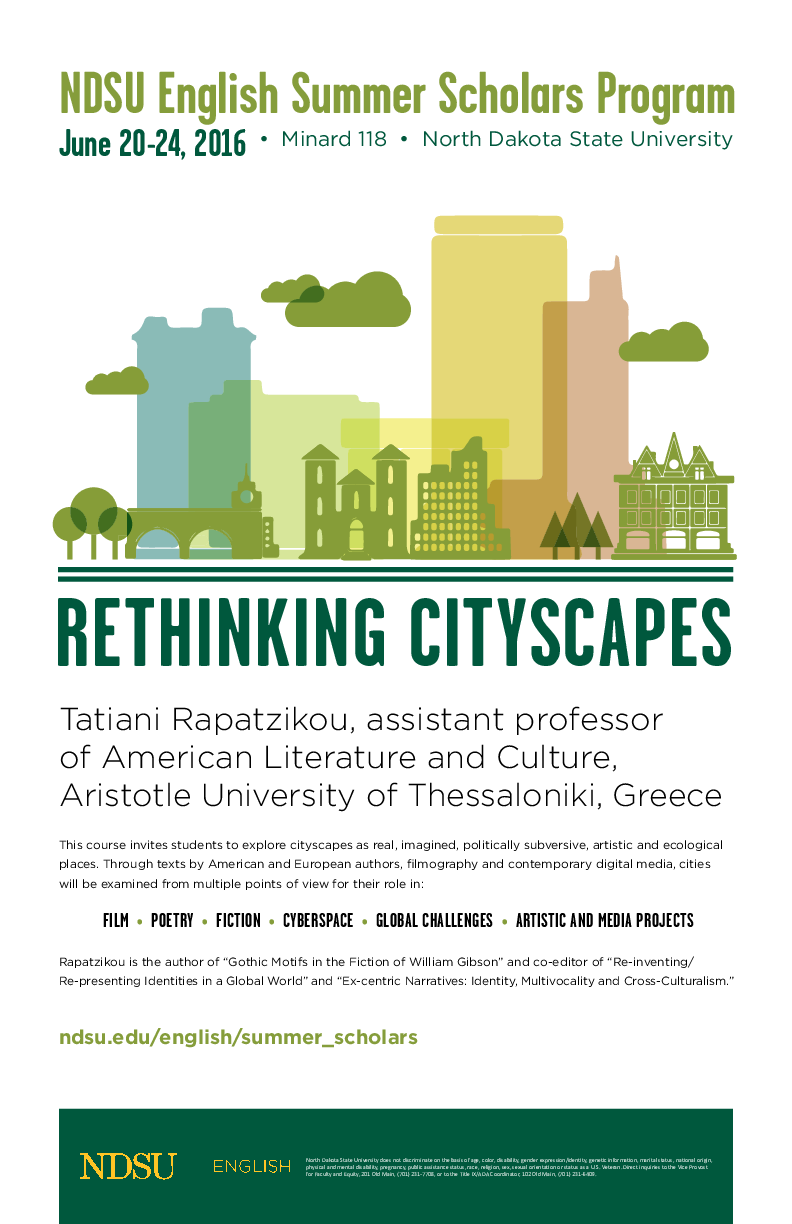
2015: Dr. Blake Scott, University of Central Florida. "Public Engagements of Health and Medicine: Rhetorical Explorations"
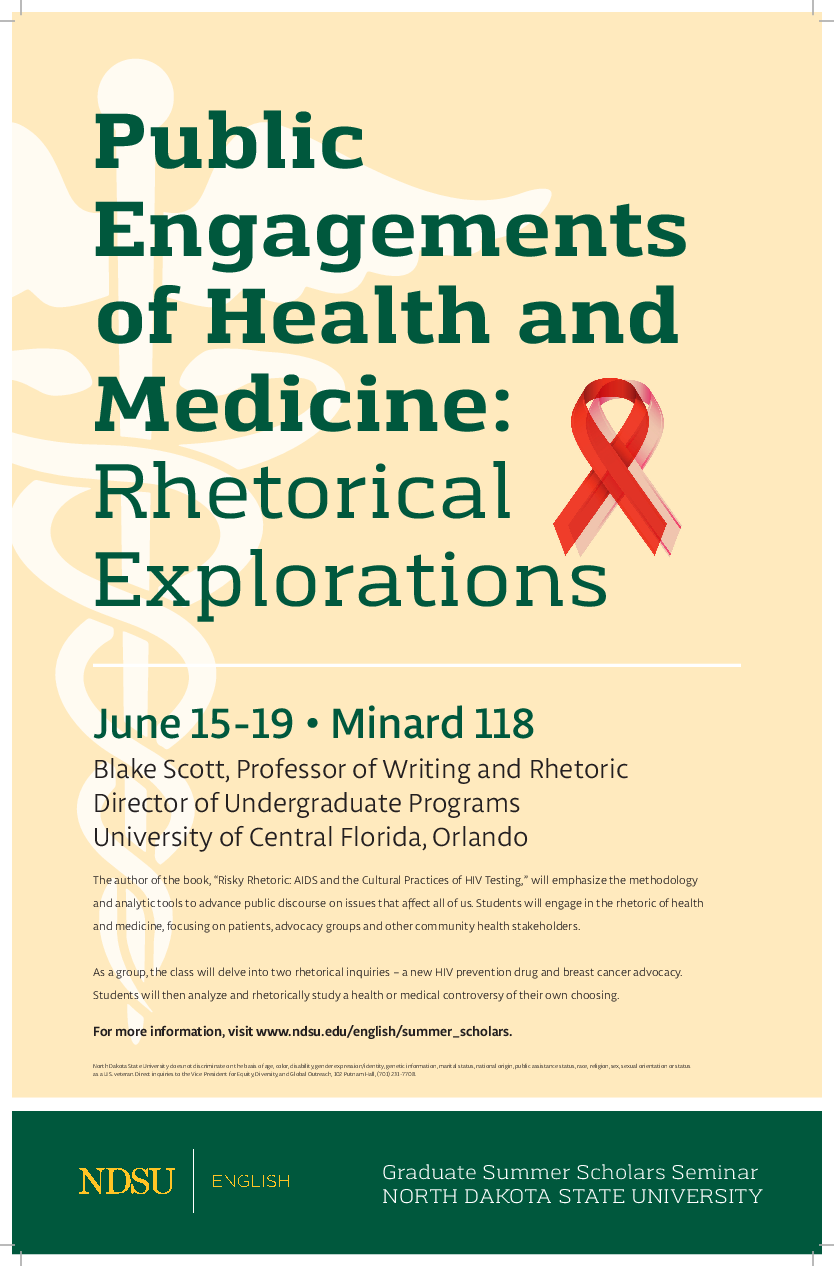
2014: Dr. Ryan Cordell, Northeastern University. "Texts, Maps, Networks: Digital Methods in the Humanities"
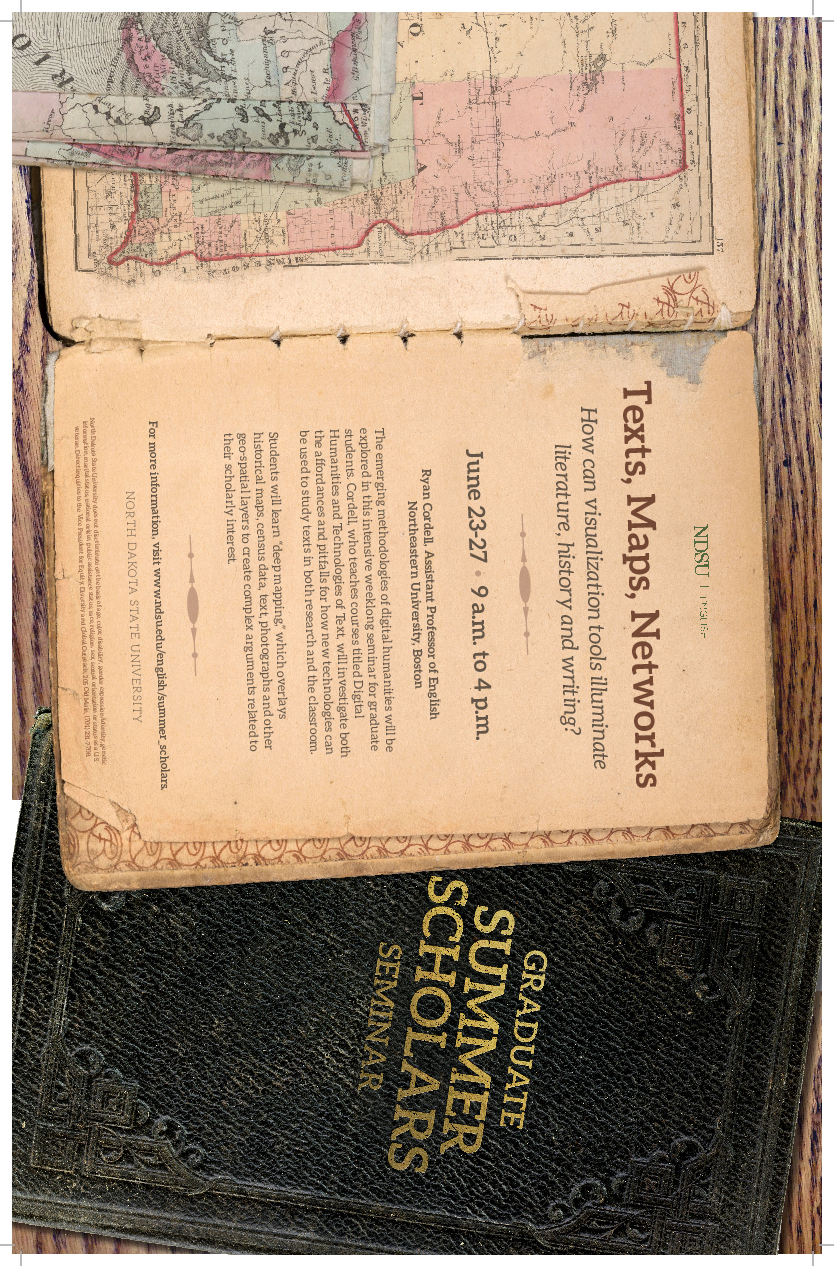
2013: Dr. Paul Prior, University of Illinois Urbana-Champaign. "Writing, Disciplinarity, and English: A Global Perspective"
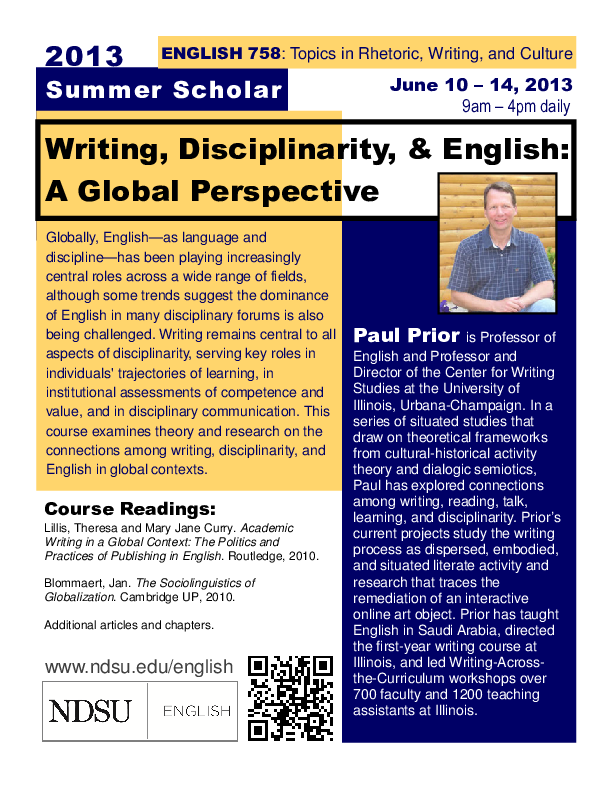
2012: Dr. Heather Dubrow, Fordham University. "New Approaches to Genre"
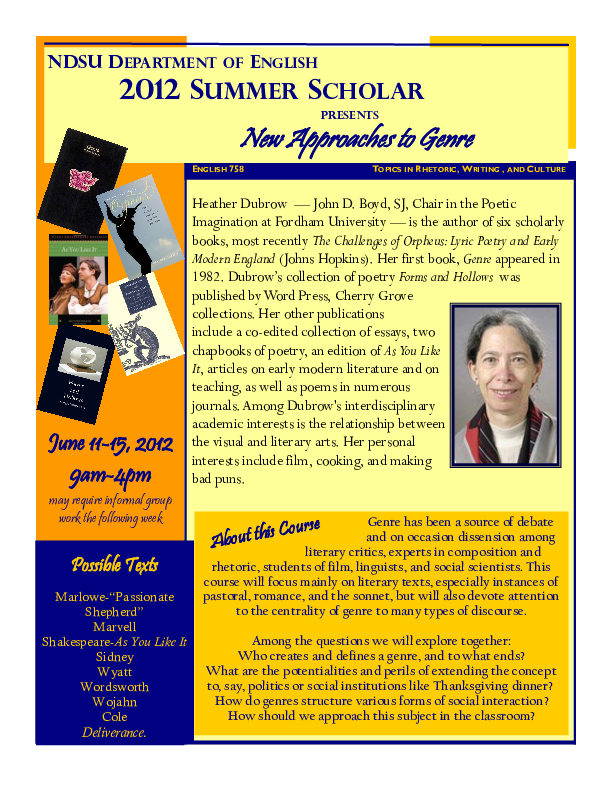
2011: Dr. Rebecca Weaver-Hightower, University of North Dakota. "Frontier Fictions: Settler Sagas and Postcolonial Guilt"
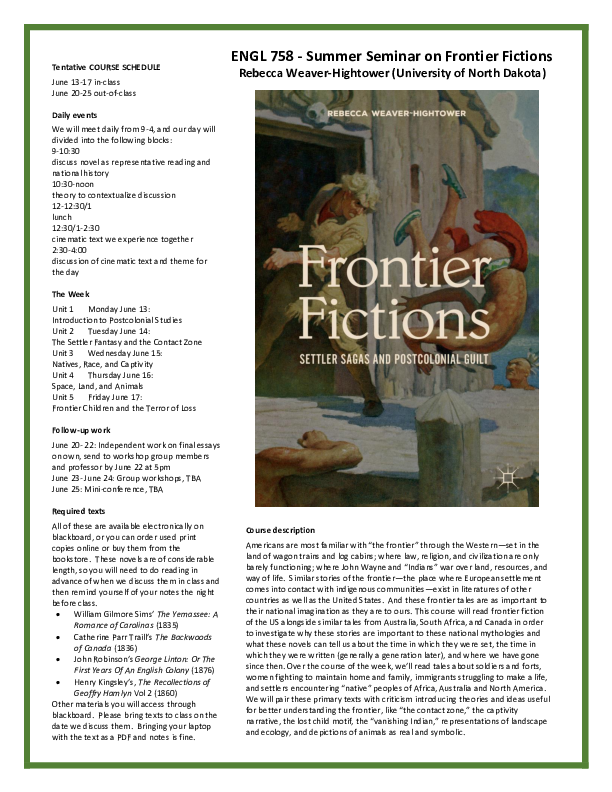
2010: Dr. Malea Powell, Michigan State University. "American Indian Rhetorics"
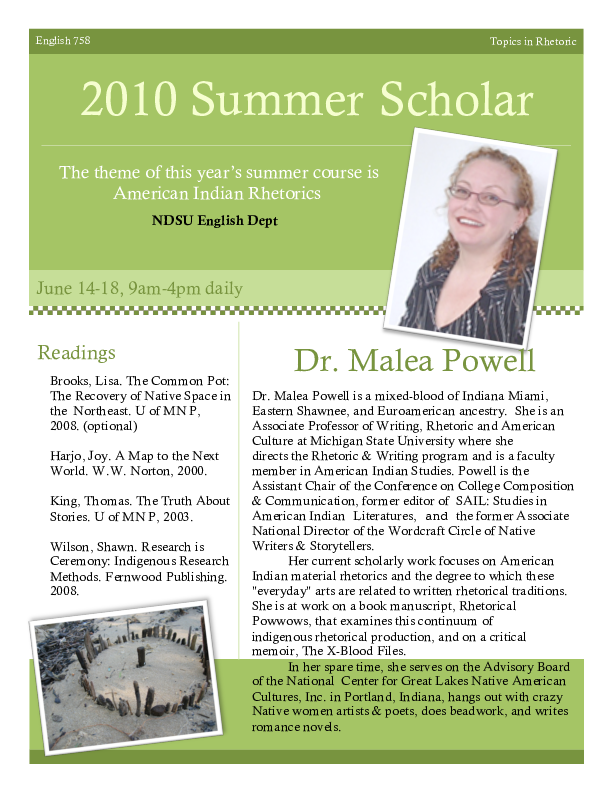
2009: Dr. Anne Ruggles Gere, University of Michigan. "Writing in School, College, and Beyond"
